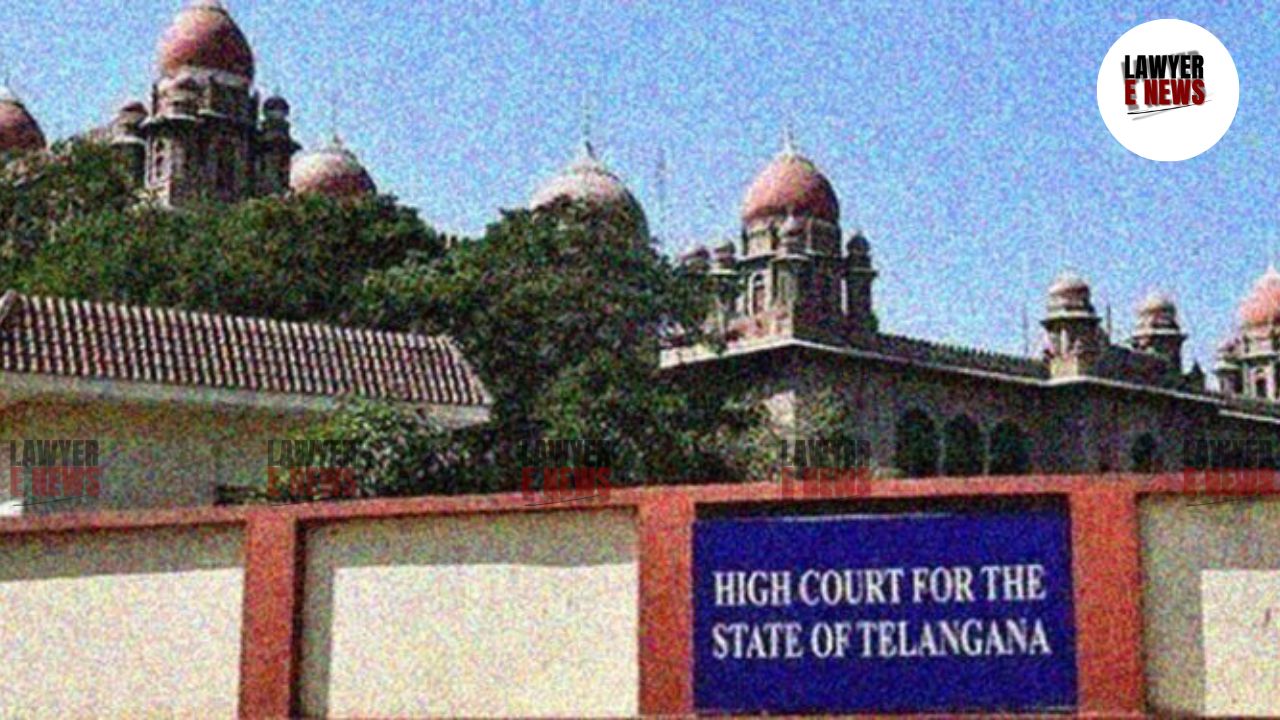-
by Admin
18 February 2026 2:25 PM



"Placing reliance solely on Board's assessment without an independent assessment by the Children’s Court is bad in law and causes prejudice" — Telangana High Court delivered a significant ruling concerning the trial of juveniles as adults under the Juvenile Justice (Care and Protection of Children) Act, 2015 ("JJ Act"). Setting aside the conviction under Section 6 of POCSO Act and Sections 364, 377, 302, and 201 IPC, the High Court ruled that the Children’s Court had erred by failing to independently assess whether the juvenile should be tried as an adult, as mandated under Section 19(1)(i) of the JJ Act. The judgment reinstates strict compliance with procedural safeguards intended to protect minors facing heinous charges.
The case arose when the appellant, a juvenile aged 17 years at the time of the offence, was convicted by the Special Judge under the POCSO Act and sentenced to life imprisonment for kidnapping, committing unnatural intercourse, and murdering a 10-year-old boy. Initially, after a preliminary assessment under Section 15 of the JJ Act, the Juvenile Justice Board transferred the case to the Children's Court. However, the Children's Court proceeded to try the appellant as an adult without undertaking an independent evaluation as required under Section 19.
The appellant challenged his conviction on the grounds that the Children’s Court had mechanically accepted the Board’s findings without conducting a mandatory independent assessment.
The main legal issue before the High Court was whether the Children’s Court fulfilled its duty under Section 19 of the Juvenile Justice Act to independently assess the minor before deciding to try him as an adult.
The Court highlighted, "Though the guidelines of the National Commission were issued subsequent to the Board’s assessment, Section 19 of the Juvenile Justice Act clearly stipulates that an independent assessment by the Children’s Court is mandatory before deciding to try the child as an adult."
It relied heavily on the Supreme Court precedents in Barun Chandra Thakur v. Bholu (2023) 12 SCC 401 and Ajeet Gurjar v. State of Madhya Pradesh 2023 LiveLaw (SC) 857, which categorically laid down that a mere acceptance of the Board's preliminary report is insufficient and the Children’s Court must exercise its independent judicial mind.
Emphasizing the gravity, the Court quoted:
"The assessment by the Children’s Court cannot be an empty formality... placing reliance solely on the Board’s assessment without an independent assessment is bad in law and prejudicial to the accused."
The High Court found that the learned Sessions Judge had merely recorded, without detailed reasoning, that an assessment was made.
The Court remarked, "By no stretch of imagination, can such findings of the learned Sessions Judge be deemed as an independent assessment under Section 19(1)(i) of the Juvenile Justice Act."
It stressed that because the Children’s Court failed to properly analyze the physical and mental capacity, understanding of consequences, and the circumstances of the offence by the appellant, the entire trial as an adult became legally untenable.
Noting the legislative intent behind dual-stage scrutiny, the Court observed:
"The Legislature has deemed it appropriate and necessary that there should be a two-stage independent assessment... since the trial by a Juvenile Justice Board and the Children’s Court vary greatly, including the possibility of inflicting life imprisonment or death penalty."
Ultimately, the High Court set aside the conviction and remanded the matter back to the Children's Court for fresh proceedings. It directed the Children’s Court to conduct a proper inquiry as per Section 19 and proceed thereafter.
The Telangana High Court reaffirmed the protective intent of the Juvenile Justice Act and the necessity of strict compliance with procedural mandates when deciding whether a child in conflict with law should face adult criminal trial. It ruled that failure to independently assess a juvenile before trying him as an adult amounts to grave legal error, warranting remand of the matter.
Date of Decision: 10 April 2025
